College of Science
Majors
14 Departments. 22 Undergraduate Majors.
Top 20 Public Research Institution.
The College of Science is the next step on your journey.
The College of Science at the University of Arizona brings together globally prominent faculty in disciplines at the core of scientific inquiry and education. One of the largest colleges at the University of Arizona, we are a nexus of award-winning programs that encourage both independent and collaborative-driven research.
Our academic departments, schools and research units encompass the range of physical, mathematical, environmental, cognitive and life sciences. The College of Science is among the most powerful and prolific academic research centers in the world, recognized and rewarded for the unparalleled caliber of our achievements.
Want to begin your journey towards becoming a Wildcat? It's as simple as 1, 2, 3...
- Explore our majors below. From Astronomy to Psychology, Computer Science to Physics, and everything in-between, our world-renowned majors offer students an opportunity to expand their horizons and find their purpose.
- Click your favorite major to see what type of classes you would take, financial aid resources, and much more.
- Apply online! You are on the path towards becoming a Wildcat in the College of Science.
Explore Our Majors

Applied Physics
Applied Physics is an interdisciplinary program that combines a broad interest in physics with practical career skills, networking opportunities and experience that equips students for real-world problem-solving. In addition to broad study of physics, students take technical elective courses in the areas of science, engineering, math or programming, along with courses in data, statistics or monitoring and communications.

Artificial Intelligence
The B.S. in Artificial Intelligence gives students an in-depth education in one of the most in-demand areas of technological advancement and application in the modern workforce. Students will develop technical skills alongside practicing critical thinking and problem solving through collaborative learning and work with our R1 faculty. We are preparing students with knowledge in data science, machine learning, and computer vision for careers in software, robotics, deep leaning, and natural language processing.
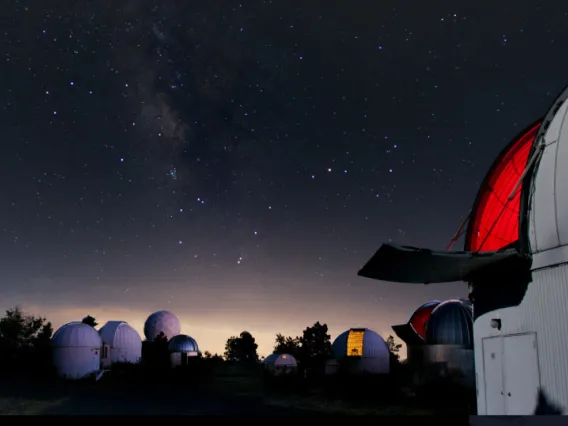
Astronomy
The Astronomy Department offers a B.S. degree in a program which is designed to prepare students for graduate work or professional employment in astronomy, astrophysics and related fields. The curriculum combines courses and research in astronomy and astrophysics with a strong foundation in physics and mathematics. The major requires 36 units of coursework.
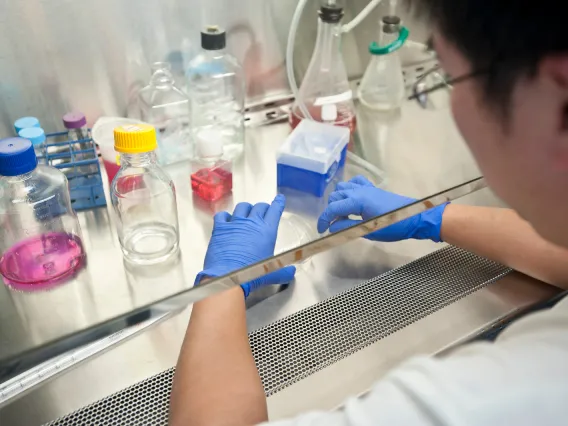
Biochemistry
The discipline of Biochemistry uses chemistry as a tool to examine and explore the processes of life. Biochemical and chemical knowledge provides an underpinning for many disciplines including medicine, agriculture, and engineering. The questions that biochemists and chemists address encompass many critical challenges that humans face today.

Bioinformatics
The major in Bioinformatics provides students with the biological knowledge and computational skills to leverage the large variety of biological data being generated. Bioinformatics majors will be prepared to meet the growing demand for individuals who understand core biological concepts and the computational approaches needed for 21st century biology.
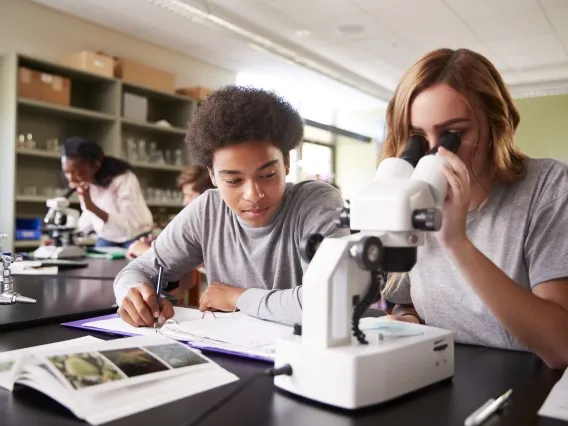
Biology
The major in Biology provides a solid foundation in modern biology. As opposed to majors with an emphasis on specific fields of biology, we offer broad training in biological systems from their component parts, biological molecules and cells, up through organisms to communities to whole ecosystems, as well as the biological processes that organize such systems and allow their development and evolution.

Chemistry
Chemistry is often called the central science as it provides the connection between mathematics and the physical, life and applied sciences. Chemistry is the science of molecules and their transformations. Chemists study the composition, properties and reactivity of matter and synthesize and discover new molecules and materials. Since the transformation of matter is integral to the modern world, the study of chemistry can lead to a diverse variety of careers.
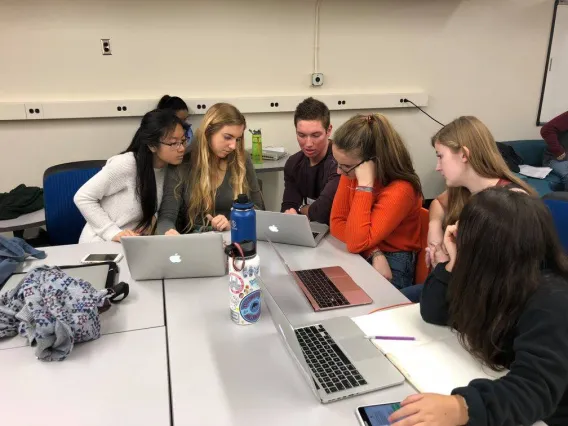
Computer Science
Computer science emerges from the interaction of two powerful kinds of machines: computers and the human brain. Computer scientists are inventive, innovative, collaborative thinkers creating software solutions and synergies on the cutting edge of technology. The Information Age is here; computer scientists are shaping it.

Data Science
Big data is changing the world. Offered through the Department of Mathematics, this degree in Data Science prepares you to take part in the data revolution. Students earning a Bachelor of Science or Bachelor of Arts in Data Science will have a solid foundation in mathematics. Yet they focus on the capture, maintenance, processing, analysis and communication of data through immersion in courses in probability, statistics, data science and computer programming.

Ecology & Evolutionary Biology
Ecology and Evolutionary Biology (EEB) deals with the integration of biological systems across all levels of organization, from molecules within cells up through global ecosystems. As such, the department covers a very wide range of topics, from the genetic analysis of complex traits, evolution at the molecular level, phylogenetic analysis, organismal form and function, population and community ecology, genomics, and mathematical modeling.
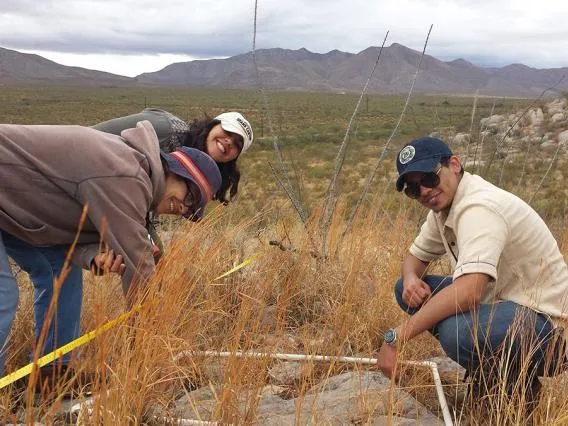
Geosciences
Geoscientists study the Earth. We look at the Earth’s origins and how it has changed, and continues to change, over time. We study all of the Earth’s components, from its core to the highest mountains; from its thousands of different minerals to its interaction with the rest of our solar system. UA Geosciences students and faculty are involved in everything from predicting earthquakes, to finding and extracting minerals from mines, to monitoring coral reefs.

Geosciences and Society
Students in Geosciences and Society will be uniquely qualified to lead in careers that promote and communicate an understanding urgent issues such as protecting water resources, natural hazards to communities, degradation of important biomes, and the impacts of climate change, from the geoscientist perspective. Offered with an emphasis in Law; Public Policy; and Science Communication.
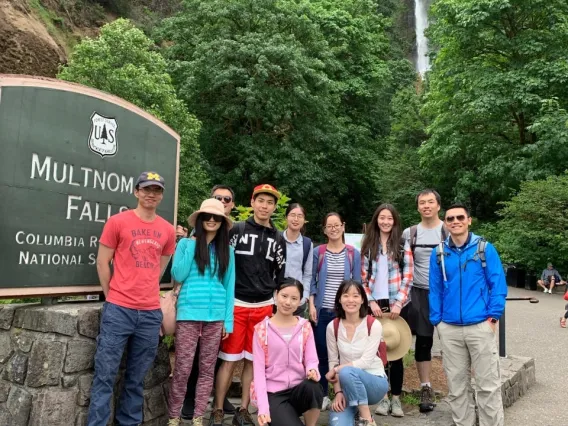
Hydrology & Atmospheric Sciences
The Hydrology and Atmospheric Science major provides students with a fundamental knowledge of the water cycle, from below the Earth's surface to above Earth's surface, in both theory and application. Students in the HAS major choose a subplan of either Environmental Hydrology and Water Resources or Atmospheric Sciences.

Mathematics
The Mathematics program programs allow the student to choose a major and emphasis that best suit the individual's talents, interests, and career goals. A student may prepare for a variety of careers by selecting the appropriate degree, major, emphasis, and minor. Students choosing a mathematics or SDS major can take advantage of the full range of mathematical resources available on campus.

Molecular & Cellular Biology
University of Arizona Molecular and Cellular Biology students learn cutting edge biology through innovative teaching methods and hands-on research experiences. The MCB degree provides students the strong foundation in genetics, development, and biotechnology they need to pursue careers in medicine and other health care fields, pharmaceutical and biology research, and education.
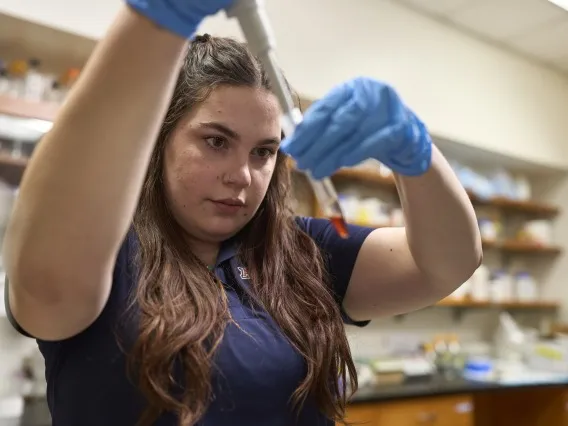
Neuroscience
The Department of Neuroscience offers a minor and a major (B.S.) in Neuroscience (NSCI). The NSCI major is tailored to students desiring contemporary in-depth knowledge of how neural circuits function from a molecular, cellular, and systems perspective and how disease processes compromise their performance. Students will also gain experience in laboratory research, with the requirement of at least one semester of research experience.
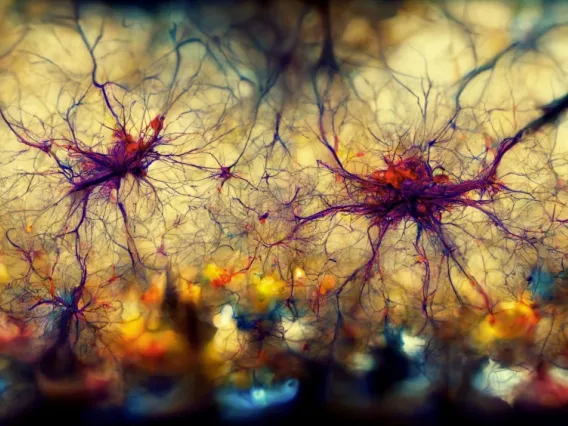
Neuroscience & Cognitive Science
The Neuroscience & Cognitive Science program is designed on a strong foundation in the basic sciences, in psychology and philosophy, and in mathematics. In addition, students choose their electives in the major from emphasis areas that enhance their understanding of core concepts and that allow them to delve into specific sub-areas in accord with their personal interest.

Physics
Study Physics to gain a broad knowledge base and a problem-solving skill set that is in demand across a variety of exciting industries. Physics is the study of matter and energy and how they interact. Students study topics such as computational physics, electricity and magnetism, quantum theory and scientific computing. They also gain expertise in calculus and other advanced math courses to develop critical thinking and reasoning skills they can apply to their physics courses and future careers.
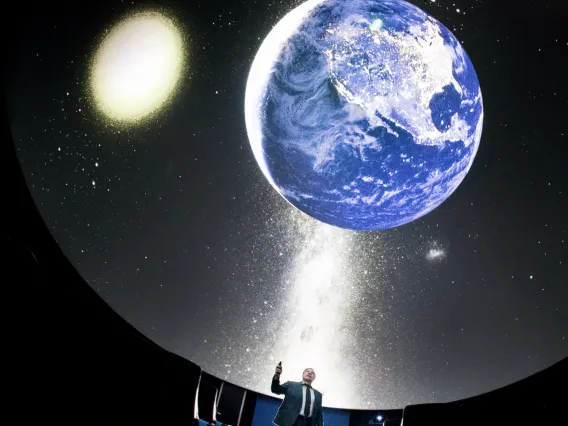
Planetary Geoscience
The Planetary Geoscience degree will prepare students for science and industry careers in the rapidly expanding field of planetary science and exploration. The curriculum will build on a foundation of mathematics, physics and chemistry; it will comprise fundamental training in Earth materials, structures, and processes; and it will provide advanced study of the physical and chemical evolution of the Solar System and advanced course options focused on particular planetary bodies and planetary topics.

Psychology
The BA in Psychology emphasizes the fundamental principles of Psychology that can be applied to solve practical problems related to human behavior and society. You’ll gain a broad education in Psychology that is relevant to many fields, including counseling and therapy, social work, education, physical health and wellness, and more. The program emphasizes real-world applications through community engagement, and is designed for students who want marketable skills they can use to enter the workforce immediately upon graduation.

Psychological Science
The BS in Psychological Science prepares students for careers that require an in-depth understanding of the research methods used to study the mind, brain, and behavior. With special topic seminars and intensive hands-on research opportunities, the BS program emphasizes critical thinking, analytical thinking, and quantitative skills that prepare students for a Ph.D. program in Psychology or for other advanced training programs that require a strong background in science, such as medicine, nursing, public health, education, business, or public policy.

Science
We offer flexibility to students who are passionate about the sciences but unsure of which major to choose. You can begin your journey within the College of Science with a B.A. or B.S. in Science to get you started on the right path. Students will gain breadth and depth in areas of science of their choosing ranging from neuroscience, earth systems and sustainability, and genetics, cell, and molecular biology, and more.

Speech, Language, and Hearing Sciences
Our undergraduate Speech, Language, and Hearing Sciences program is designed to provide foundational information to develop critical thinking skills, the ability to evaluate scientific information, and to facilitate the development of writing skills. For students wishing to pursue clinical or research careers in Audiology or Speech-Language Pathology, the undergraduate degree provides the prerequisite coursework required for graduate study.
Undecided in Science
We offer flexibility to students who are passionate about the sciences but unsure of which major to choose. You can begin your journey within the College of Science with a B.A. or B.S. in Science to get you started on the right path. Please contact our advising team to learn more.
Tharini (Raini) Wijeweera, Assistant Director, Academic Advising
(520) 621-8128; raini@arizona.edu
Contact an Academic Advisor
College of Science Office of Student Services
For academic advising related to your major, please click here to find your advisor.
Student Services Office: Bartlett Academic Success Center (BASC) Room 417; 520-621-8128; science@arizona.edu
We assist students on a drop-in basis with:
- Help with general and medical petitions
- Requesting a schedule change after the posted deadlines
- Extension of Incomplete grade
- Questions regarding academic probation, academic recovery, academic disqualification or dismissal
- Requests for SCI 195a enrollment, U-TURN program, Making the Grade workshop
- Peer Advising program in the College of Science
- Questions about Leave of Absence/ Back 2 UA
- Questions about Second Start and/or Academic Renewal
- Help with general questions regarding deadlines, policies, procedures, or other questions/issues not handled in your major department
Robin Rarick, Senior Director, Academic Advising
(520) 621-8128; rrarick@arizona.edu
Tharini (Raini) Wijeweera, Assistant Director, Academic Advising
(520) 621-8128; raini@arizona.edu

